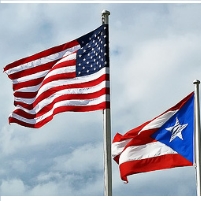Appeals Court Denies Puerto Ricans Right to Vote in U.S. Elections
Monday, January 03, 2011

A lawsuit seeking to establish voting rights for U.S. citizens in Puerto Rico was rejected by a federal appeals court in Boston, citing the supremacy of the Constitution over international law.
Plaintiffs tried using The United Nations International Covenant on Civil Rights and Political Rights, which the U.S. ratified in 1992, as grounds for giving Puerto Ricans the right to vote in U.S. elections. But on November 24, a panel of judges on the First Circuit Court of Appeals ruled 2-1 that the treaty could not trump constitutional law.
Chief Judge Sandra Lynch wrote for the majority opinion that voting rights are “limited to the citizens of states,” which excludes residents of Puerto Rico because they are part of a territory, not a state.
Puerto Ricans have been U.S. citizens since 1917, and they are ruled by the president of the United States and by Congress. But unlike citizens of the 50 states, Puerto Ricans are not allowed to vote. In a referendum held in 1998, 46.5% of Puerto Ricans voted in favor of statehood. On April 29, 2010, the House of Representatives passed the Puerto Rico Democracy Act of 2010, which would allow Puerto Ricans to vote on their political status. However, in the Senate, the bill did not make it out of the Committee on Energy and Natural Resources.
-Noel Brinkerhoff, David Wallechinsky
Court Denies Puerto Rico's Latest Voting Rights Bid (by Matt Reynolds, Courthouse New Service)
Gregorio Igartúa, et al. v. United States (First Circuit Court of Appeals)
- Top Stories
- Unusual News
- Where is the Money Going?
- Controversies
- U.S. and the World
- Appointments and Resignations
- Latest News
- Trump Renames National Football League National Trump League
- Trump to Stop Deportations If…
- Trump Denounces World Series
- What If China Invaded the United States?
- Donald Trump Has a Mental Health Problem and It Has a Name






Comments